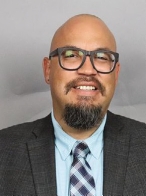California's Education Code to receive a high school diploma. Before the student with an IEP begins grade 10, the IEP team must determine if the student is eligible for this exemption, which requires the student to take the California Alternative Assessments for various subjects in grade 11 and complete coursework aligned with state standards.
This will go a long way toward facilitating more students' transition from public school to the world of competitive integrated employment.
WHAT IS COMPETITIVE INTEGRATED EMPLOYMENT?
"Competitive integrated employment" is exactly what it sounds like and it's what most people engage in throughout their working lives. It's competitive in that the person with disabilities holds a position that requires them to interview and demonstrate their qualifications, and could just as easily be held by a person without disabilities. It also requires the employer to pay the person with disabilities whatever is customary for anyone completing the same work. It's integrated in that the person with disabilities works alongside peers without disabilities, sometimes with the assistance of a job coach, who may provide more or less support depending on the individual's needs. It's employment in that the person with disabilities is paid to perform the job.
It's long been recognized that just as is the case for typical adults, a paying job in the community can instill self-esteem and a sense of accomplishment and purpose for a person with developmental disabilities. This is one of the reasons the State of California and Regional Center of Orange County have both adopted Employment First policies, which mandate that we explore competitive integrated employment as the first option for the working-age adults we serve.
Though we, like many others, are challenged to secure competitive integrated employment for all of the adults with developmental disabilities who want jobs, Regional Center of Orange.
County and our community's employment service providers have been recognized for our efforts to help the adults we serve, achieve their career goals.
This includes creating partnerships with prospective employers to identify jobs that match the skills of the those we serve, and partnering with employers on internship programs that enable people to gain important job skills and experience that can set them up for longer-term success in the workplace.
INTERNSHIPS CAN MAKE A BIG DIFFERENCE
Among the great internship success stories is that of Project SEARCH. Created in 1996 with a program at Cincinnati Children's Hospital Medical Center, Project SEARCH now includes sites across the U.S. and globally. In our community, we and our service providers have successfully established Project SEARCH internships at several area hospitals. These almost year-long internships provide real-life work experience that give persons with developmental disabilities exposure to different potential career avenues, and provide new skills and experience that can
build a resume for future employment. In fact, a number of our Project SEARCH graduates have been offered employment in both traditional and non-traditional roles, often with full benefits.
For example, one young man we serve who has autism, works in a hospital's patient financial services department, while a young woman we serve who also has autism, found rewarding work in a hospital's food service department.
In California, we also have a state-funded option called the Paid Internship Program that has seen some great successes. We at RCOC have been especially pleased at the efforts of businesses like Edwards Lifesciences. A global leader in patient-focused medical innovations for structural heart disease, as well as critical care and surgical monitoring, Edwards Lifesciences has demonstrated outstanding leadership in providing life-enhancing opportunities for adults with disabilities, as a host site for various paid internships, some of which have resulted in full-time employment with the company.
However, smaller enterprises can also benefit from paid internships, to enhance the diversity of their workforces and provide opportunities for those with disabilities.
PARENTS AS JOB DEVELOPERS
Another internship success story I like to share is that of Jeffrey Baek, a young man with autism. Previously successfully employed for six years at a Ralph's grocery store, Jeffrey wanted to pursue other career interests in film and video. He also wanted to get into a line of work where he could make more money, that would allow him to travel more with his family.
Jeffrey's mother, Jinsook Baek located the ideal opportunity for him with a local Korean-owned filmmaking company, and persuaded them to bring Jeffrey on as a paid intern through the Paid Internship Program. What began as a three-month trial, worked out so well that Jeffrey continued the internship for a year, giving him excellent work experience. He learned how to use CGI, transitions, effects, and cinematic experiences, and also greatly benefitted from learning how to better engage with coworkers.
Jinsook's efforts are representative of what we see as an exciting new approach, in which parents increasingly take the initiative to tap their own professional networks, and sometimes even their own employers to uncover work opportunities, not just for their loved ones, but for all individuals with disabilities. It's leading to greatly enhanced career options for those we serve, and more inclusive and diverse workplaces, which is good for all of us.•
ABOUT THE AUTHOR:

Arturo Cazares is Director of Community Services for Regional Center of Orange County, the private, nonprofit organization contracted by the State of California to coordinate lifelong services and supports for more than 25,000 Orange County, California residents with developmental disabilities and their families. The Regional Center is the first stop for those seeking to obtain local services and supports to help them live safely and with dignity in the community. Developmental disabilities include intellectual disabilities, autism, epilepsy and cerebral palsy. Learn more at rcocdd.com.